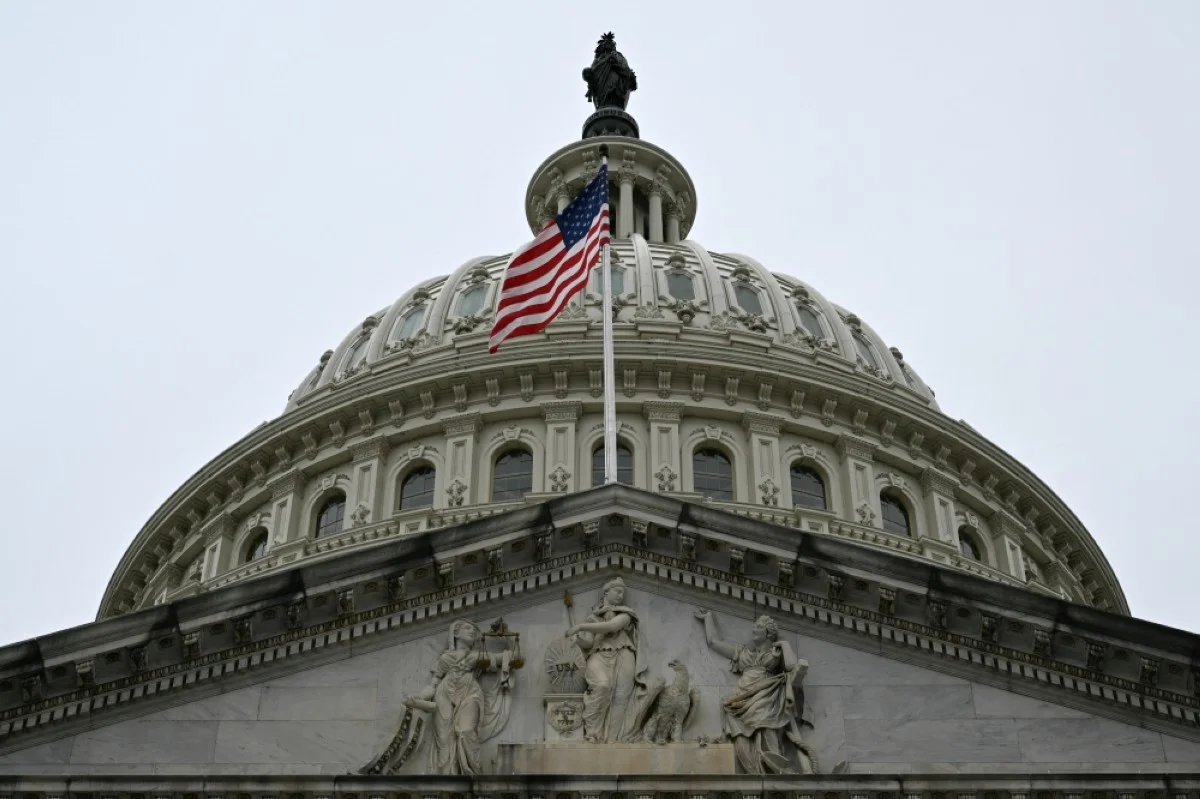WASHINGTON: The US Congress approved a funding bill Saturday in a rare show of cross-party unity, keeping federal agencies running through September and averting a damaging partial government shutdown. Senators missed a midnight deadline to pass the $1.2 trillion package to keep the lights on in several key government agencies but voted in the early hours to pass a resolution that had already advanced from the House.
“It wasn’t easy, but tonight our persistence has been worth it,” Democratic Majority Leader Chuck Schumer said on the Senate floor after hours of tense negotiation. “It is good for the American people that we have reached a bipartisan agreement to finish the job,” he added before the bill received final approval. A day of high-stakes drama began on Capitol Hill when the House of Representatives passed a $1.2 trillion, six-bill package Friday at lunchtime, representing the largest and most contentious section of federal funding.
With cash running out at midnight for three-quarters of the government, including defense and homeland security, the Senate was thrust into a race against the clock to advance the legislation to President Joe Biden’s desk. But the budget negotiations looked like they were breaking down, with both sides pushing to tweak the legislation to reflect their campaign messaging and priorities ahead of November’s presidential election, when Biden faces former president Donald Trump.
Senators were preparing to adjourn with no deal on holding a vote, which would have prompted the White House Office of Management and Budget (OMB) to begin scaling back operations in key federal agencies on Saturday morning. But a deal came together just as the midnight deadline arrived and the Senate voted to pass the resolution after 2:00 am local time (0600 GMT) in Washington.
“OMB has ceased shutdown preparations because there is a high degree of confidence that Congress will imminently pass the relevant appropriations and the president will sign the bill on Saturday,” the White House said in a statement after the deal was struck. “Because obligations of federal funds are incurred and tracked on a daily basis, agencies will not shut down and may continue their normal operations.” Hours earlier, Republican House Speaker Mike Johnson had angered his own right flank by relying on Democratic votes to advance the package to the Senate.
Marjorie Taylor Greene, a close ally of Trump, told reporters she had filed a “motion to vacate” the speaker’s chair over Johnson’s endorsement of the funding package, thrashed out over weeks of tense negotiations between the parties. The resolution, a rare maneuver that requires a simple majority to pass, comes after the same move led to the removal of previous speaker Kevin McCarthy last fall — and weeks of infighting as Republicans rejected several potential replacements before settling on Johnson.
The timeline for next steps on Greene’s resolution was not immediately clear, although a vote to remove Johnson cannot take place until April at the earliest, with the House now on a two-week recess. Greene told CNN that “quite a few” Republicans were supporting her effort. The shutdown would have affected about 70 percent of government agencies and departments, as the first 30 percent — covering agriculture, science, veterans’ programs, transport and housing — passed without major drama last month. Five of the six bills covering the rest of federal spending were also straightforward, but disputes over the funding of homeland security delayed the release of the deal, originally expected last weekend. — AFP










